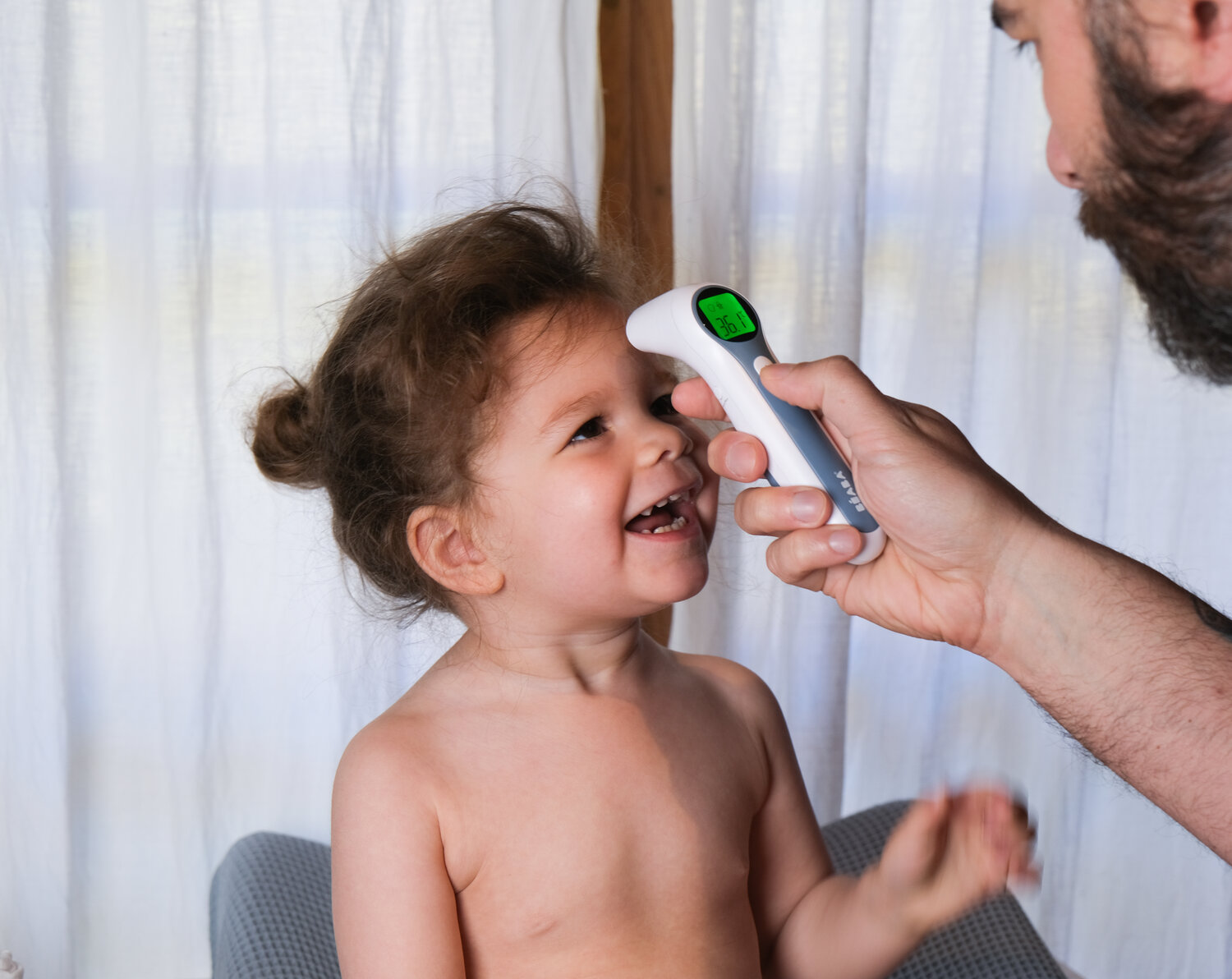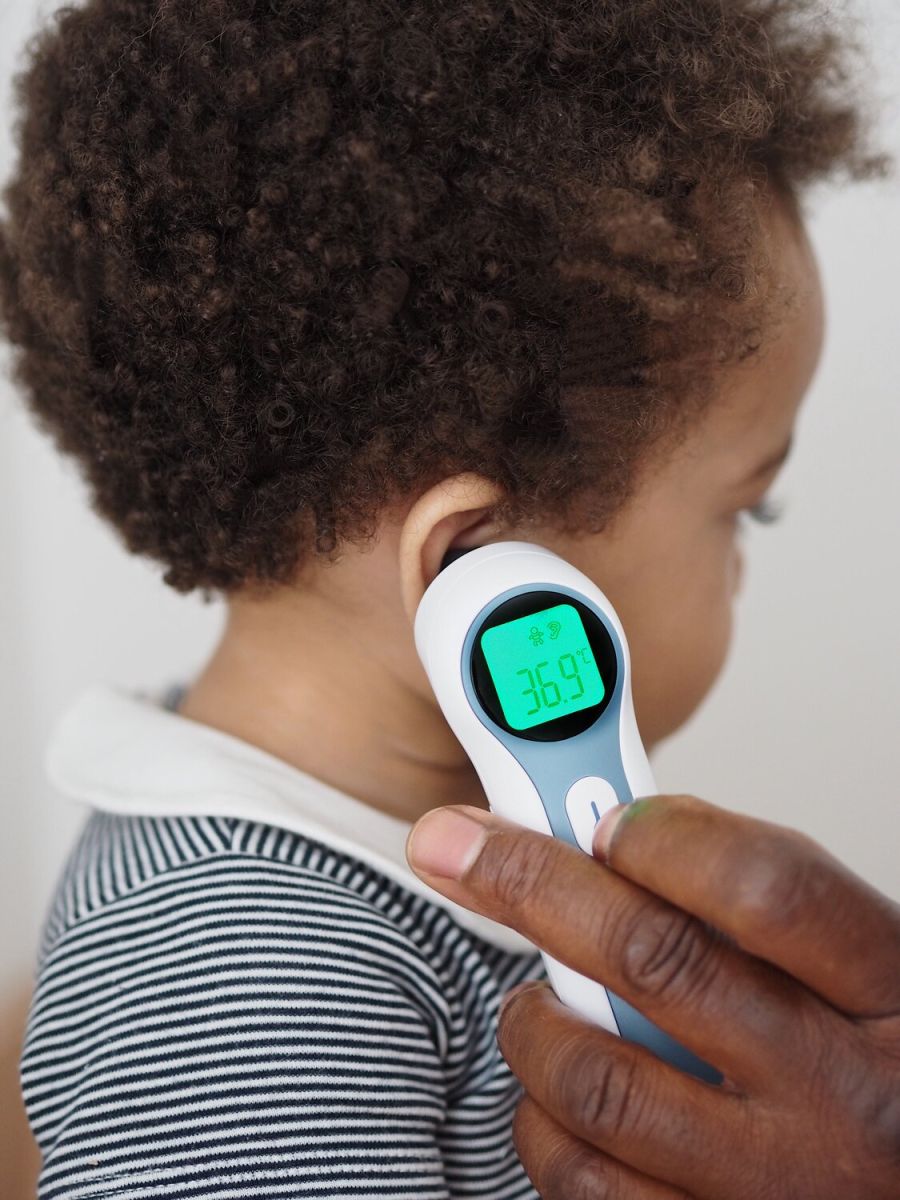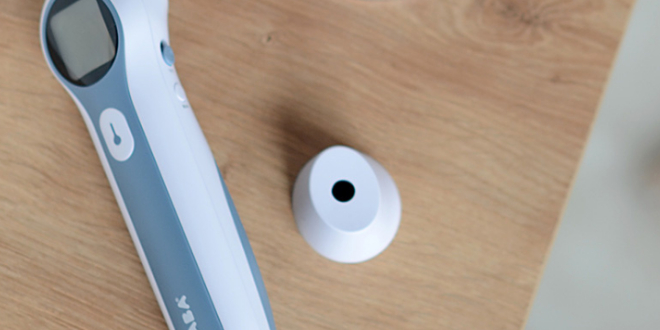Few things worry parents more than a fever in their little one. Seeing your baby warm, flushed or unsettled can be stressful, but fevers are often the body’s natural way of fighting infection. The key is knowing when to worry about a baby fever and what steps you can take at home to keep your child comfortable
What Is a Baby Fever?
A fever in babies is typically defined as a rectal temperature of 38°C or higher. Fevers are not an illness themselves but a sign that the body is responding to infection, teething or other underlying conditions
Common causes of baby fevers include:
-
Viral infections (like colds or flu)
-
Ear infections
-
Urinary tract infections (UTIs)
-
Teething (can cause a mild temperature rise, but usually not a true fever)
-
Immunisations

When to Worry About a Baby Fever
Not all fevers require medical attention, but certain situations mean you should call a doctor right away:
-
Under 3 months old with a fever of 38°C or higher
-
Between 3–6 months with a fever above 38.3°C
-
Older than 6 months with a fever above 39°C
-
Persistent fever lasting more than 2–3 days
-
Signs of dehydration (dry mouth, no wet nappies, sunken fontanelle)
-
Trouble breathing, persistent vomiting or seizures
-
Extreme fussiness, lethargy or difficulty waking your baby
When in doubt, always seek medical advice
What You Can Do at Home
If your baby has a mild fever and is otherwise alert, drinking fluids and playing, you may be able to manage symptoms at home with these steps:
-
Keep Your Baby Comfortable
Dress them in light clothing and keep the room at a comfortable temperature -
Offer Fluids Frequently
Fevers can lead to dehydration, so continue breastfeeding or formula feeding, and offer water for older babies -
Use Fever-Reducing Medicine (if advised)
Paracetamol or ibuprofen may be recommended for babies over a certain age. Always follow your doctor’s instructions -
Monitor Closely
Take regular temperature readings and watch for changes in behaviour or symptoms -
Avoid Over-Bundling
Too many layers can trap heat and make your baby more uncomfortable
What Not to Do
-
Don’t give aspirin to babies (linked to serious complications)
-
Don’t use cold baths or ice packs (they can cause shivering, which raises body temperature)
-
Don’t ignore your instincts—if you feel something isn’t right, contact your doctor
While baby fevers can be unsettling, they are often a sign that your child’s immune system is doing its job. The most important thing is to know when to worry about a baby fever and when simple home care is enough. Always trust your instincts and seek professional advice if your baby’s symptoms concern you.
With the right care and attention, most fevers pass quickly and safely.

FAQ's About Baby Fevers
Can teething cause a fever?
Teething may cause a slight rise in body temperature, but it usually doesn’t lead to a true fever above 38°C. If your baby has a higher fever, it’s more likely due to an infection
When should I call a doctor for a baby fever?
Call a doctor if:
-
Your baby is under 3 months with a temperature of 38°C or higher
-
Your baby is 3–6 months with a fever over 38.3°C
-
Your child is older than 6 months with a fever over 39°C
-
The fever lasts more than 2–3 days or is accompanied by severe symptoms
How can I take my baby’s temperature accurately?
For newborns and infants, a digital thermometer gives the most accurate reading. For older babies, ear or forehead thermometers can be used, but digital readings are still the gold standard
Should I give medicine for every fever?
Not always. If your baby is alert, drinking fluids and comfortable, you may not need medicine. Fever reducers like paracetamol or ibuprofen (for babies over a certain age) should only be used if advised by your doctor
Can a baby fever be dangerous?
Most fevers are harmless and short-lived. However, fevers in very young babies or those with underlying health conditions should always be taken seriously. High or prolonged fevers require medical attention












Understanding Baby Fevers: When to Worry and What to Do